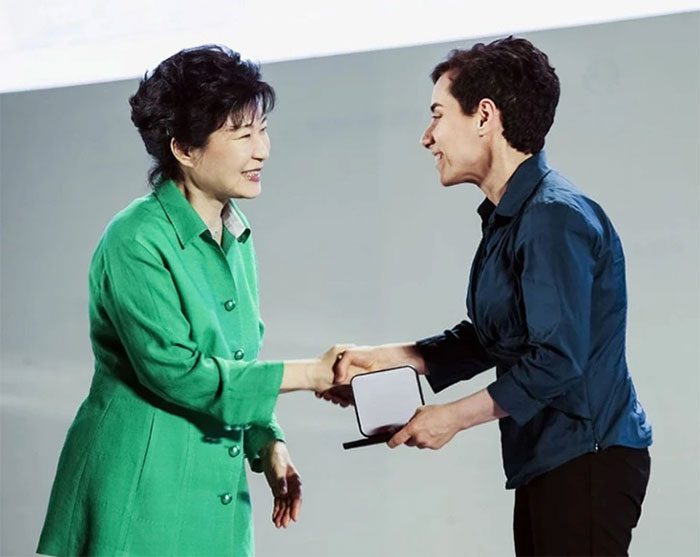Prestigious mathematics awards such as the Fields Medal, the Abel Prize, and the Breakthrough Prize are primarily awarded to men.
French mathematician Claire Voisin, from the French Academy of Sciences, has been announced as the first woman to receive the Crafoord Prize in Mathematics for 2024—one of the most prestigious awards in the field of mathematics, which will be presented in May alongside the Nobel Prizes, according to the journal Nature.
The Crafoord Prize, established by a Swedish industrialist in 1980 and managed by the Royal Swedish Academy of Sciences, is awarded in four fields: Astronomy, Mathematics, Geosciences, and Biosciences. These fields were selected to complement the sciences already honored with Nobel Prizes.

Ms. Maryam Mirzakhani (right), who passed away in 2017, was the first woman to win the Fields Medal – (Photo: ALAMY).
Only 5 Women Among 217 Math Awards
Ms. Voisin is one of only five women to have received top mathematics awards in the past 90 years.
This achievement highlights an ongoing issue in mathematics: the lack of gender diversity among those honored with the most prestigious awards in the field.
Six of the world’s top mathematics awards—the Fields Medal, and the Abel, Shaw, Wolf, Crafoord, and Breakthrough Prizes—have been awarded a total of 217 times, but only 7 of those awards have gone to women.
Two women—Ms. Voisin and Maryam Mirzakhani—each received 2 of those awards.
Ms. Voisin also won the Shaw Prize in 2017.
Ms. Mirzakhani won the Fields Medal in 2014 and was posthumously awarded the Breakthrough Prize in 2020, primarily for her theoretical work on understanding the symmetry of curved surfaces.
In 2023, physicist and mathematician Ingrid Daubechies, known for her work on wavelets in image compression, received the Wolf Prize.
Meanwhile, Karen Keskulla Uhlenbeck won the Abel Prize in 2019 for her pioneering efforts in modern geometric analysis.
Additionally, number theorist Maryna Viazovska received the Fields Medal in 2022.
The Gender Gap
The International Mathematical Union (IMU), a global organization promoting cooperation in mathematics, has member organizations in over 80 countries. However, the IMU does not maintain demographic statistics about its membership.
According to a 2018 survey by the American Mathematical Society (AMS), women represent between 25% and 30% of doctoral degree holders in mathematics in the United States.
Carolina Araujo, president of the IMU’s Committee for Women in Mathematics, stated: “Despite the increasing awareness of the gender gap and significant progress in recent years, some aspects remain unchanged.”
According to Araujo, statistics show that while the proportion of female authors writing mathematical research papers has steadily increased over the decades, the percentage of female authors in leading mathematics journals remains below 10%.


















































